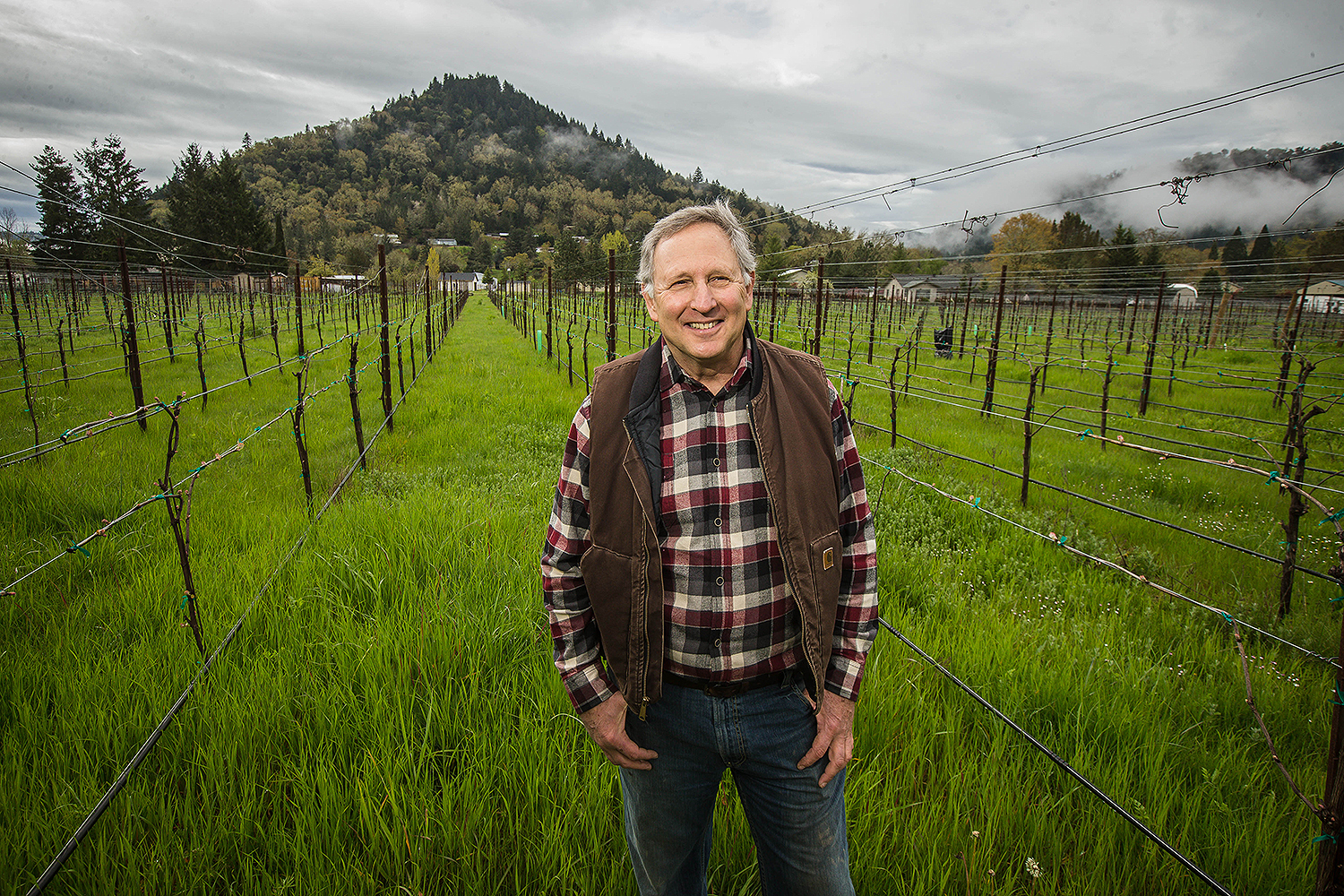Legends of the Umpqua: Scott Henry III

After helping astronauts get home from the moon, a pioneering winemaker returns home, and to the earth, to make his mark.
Story and photo by Brittany Arnold
Henry Estate Winery is a longtime family-owned business in Douglas County and a well-known name throughout the wine industry.
The Henrys were one of the first families to spearhead wine making in the Umpqua Valley. The operation began in 1972 when the family planted the original 12 acres of grapes. By 1978, the winery was completed, and grapes were crushed.
Some 2,000 gallons of wine were produced and released in 1980. Today, the estate produces 6,000 cases annually.
And all this is the result of one man going against the grain
During his time in California, Henry had grown fond of wine and continually wondered why winemaking hadn’t caught on in Oregon.
Born and raised on the family’s 300-acre farm outside of Roseburg, Scott Henry III knew the farming and ranching business well. But instead of pursuing a career in it, he headed to Oregon State University, where he would earn a master’s degree in mechanical engineering.
From there, Henry moved to California and started a career as an aeronautical engineer, which later would see him involved in the manufacturing of the rocket engine that brought U.S. astronauts back from the moon.
After moon landings ended, the rocket business declined. At the same time, Henry’s dad fell ill. So Henry decided to return home to the farm, but on one condition — he’d get to plant grapes. During his time in California, Henry had grown fond of wine and continually wondered why winemaking hadn’t caught on in Oregon.
“When I started doing it, everyone thought I was nuts,” Henry remembers. “Now everyone is doing it.”
Henry’s biggest start-up hurdle was finding the right location to plant. The spot Henry was most interested in using for grapes was criticized by many. “I got advised by a number of people and told not to grow where I was wanting to grow,” Henry says. “But, I have an engineering background and we engineers try different things.”
Trying a different thing this time paid off. Because of the flat ground Henry was working with, he created a unique trellis system that optimizes the maturation and quality of the grapes. Named the Scott Henry Trellis System, Henry was globally recognized for this technique shortly after his winery’s first release in the 1980s. Soon winemakers in New Zealand were using his trellis system, and now the technique is used all over Oregon, California and Europe.
Henry says he thought about patenting his trellis system but decided he wouldn’t like how it would restrict others. “The better people do at making wine, the better we all are for it,” he says.





